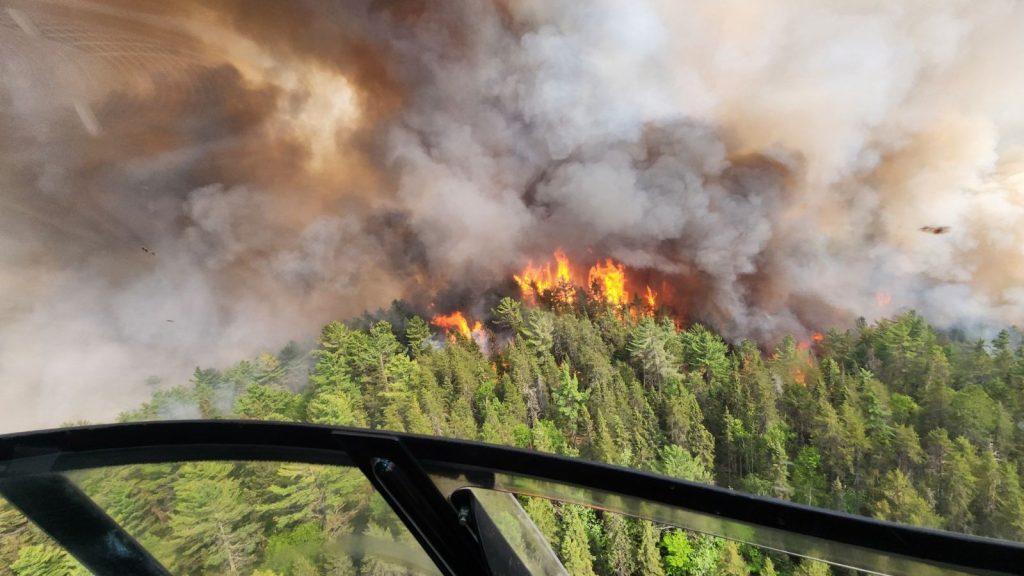Wildfires occurring in parts of Ontario and Quebec are producing smoke that is being carried into Simcoe Muskoka and affecting local air quality. The Simcoe Muskoka District Health Unit advises taking the following steps to protect your health when air quality is poor:
- Limit outdoor activities and strenuous physical activities on smoky days
- Consider wearing a well-fitted respirator type mask (e.g., NIOSH, N95 or equivalent) if you work or spend a lot of time outdoors.
- Use a portable HEPA air cleaner to filter the air in a room where you spend a lot of time.
- Reduce sources of indoor air pollution, including smoking and vaping, burning incense and candles, using air purifiers that produce ozone, and using wood stoves.
- If indoor temperatures are comfortable, close windows and doors. If you have an HVAC system in your home, use the highest rated MERV filter for your system (ideally rated 13 or higher) and set the fan to recirculate air constantly. Limit the use of the exhaust fan when cooking to prevent outdoor air from coming indoors.
- Visit public spaces like community centres and libraries which tend to have cleaner, cooler indoor air.
- When driving, keep windows up and set the air conditioning to the recirculate air setting to limit intake of outdoor air.
Regardless of your health status or age, anyone can be affected by wildfire smoke. Listen to your body and reduce exposure if the smoke is affecting you and remember to look out for others around you. Some people are at higher risk of experiencing negative health effects, including infants and young children, pregnant people, older adults, those with chronic lung and heart diseases (e.g., asthma, COPD, heart disease, diabetes), and people who do strenuous outdoor work or sports.
Short-term exposure to wildfire smoke and certain air pollutants, even at low levels, can:
- Cause headaches;
- Make it harder to breathe;
- Irritate your eyes, lungs, nose and throat; and
- Worsen existing heart and lung conditions, including asthma, and increase the risk of heart attack, and stroke.
If you, or someone around you experience severe symptoms, seek medical attention as soon as possible. Immediately call 911 if you think you or someone else is having a heart attack, stroke, or experiencing another medical emergency.
For more information, visit www.smdhu.org/WildfireSmoke or call Health Connection weekdays 8:30 a.m. to 4:30 p.m. at 705-721-7520 or 1-877-721-7520.
